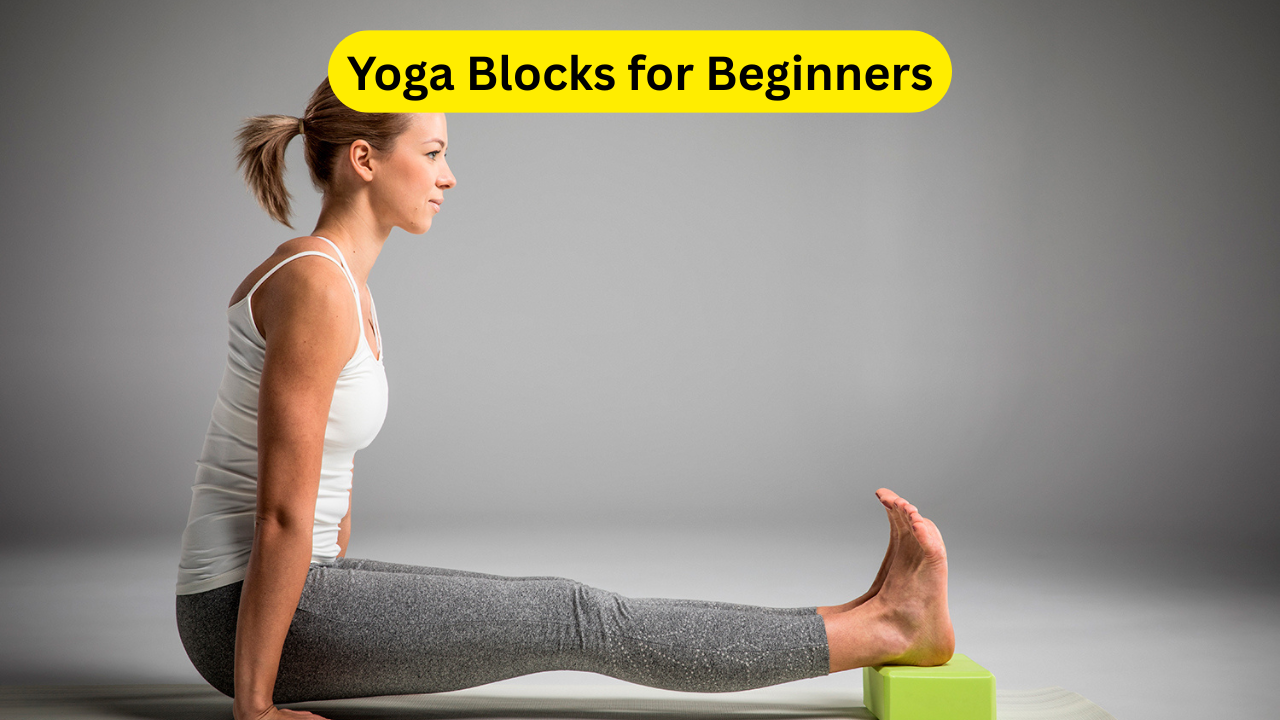Yoga and Overweight: Yoga is an incredibly versatile and accessible practice that can be beneficial for people of all shapes, sizes, and fitness levels. Whether you’re looking to improve flexibility, enhance strength, or achieve better mental clarity, yoga offers a wide array of benefits that extend beyond just physical fitness. For those carrying extra weight, yoga provides a gentle yet powerful way to support your health and well-being without requiring you to be an expert right from the start. The beauty of yoga lies in its adaptability—every pose can be modified to fit your individual needs and comfort level, ensuring that you can start wherever you are and progress at your own pace.
For those who are overweight or new to exercise, yoga offers an inclusive environment where you can work on improving your physical fitness while also nurturing your mental health. The practice combines movement, breathwork, and mindfulness to create a holistic approach to wellness. Whether it’s through gentle stretches or more challenging flows, yoga can help you become more attuned to your body, enhance mobility, and reduce stress. Moreover, yoga promotes a healthy relationship with food and your body, which can be vital for managing weight loss and fostering long-term well-being.
In this article, we’ll explore the various benefits of yoga for individuals with overweight, offer helpful tips for getting started, and provide strategies for overcoming any challenges you might encounter. Whether you’re a yoga novice or returning after a long hiatus, you’ll discover that yoga can be a life-changing practice, no matter your weight or fitness level.
How Yoga Supports Wellness
Yoga is an incredibly holistic practice that benefits not only your body but also your mind and spirit. The positive effects of yoga are numerous, and its adaptability makes it an excellent choice for those with extra weight. Here are some of the key ways that yoga supports overall wellness:
Physical Benefits of Yoga for Overweight Individuals
One of the primary reasons people turn to yoga is to enhance their physical health. Yoga is known to improve strength, flexibility, and cardiovascular health. For individuals with overweight, the practice of yoga helps in several ways:
- Enhancing Metabolism: Regular yoga practice can help boost your metabolism. Research has shown that people who practice yoga tend to have greater metabolic efficiency compared to those who do not engage in the practice. A study indicated that yoga may help individuals burn more calories and process food more effectively, which can contribute to healthier body weight.
- Calorie Burn and Weight Loss: Yoga, especially styles like Hatha and Vinyasa, offers a combination of strength and cardio movements that engage multiple muscle groups, helping to burn calories. A 160-pound person can burn around 180 calories in one hour of yoga. A 2021 study revealed that participants practicing yoga for six months lost an average of 7.5 pounds, proving that yoga can be effective for weight loss, especially when combined with a balanced diet and other forms of exercise.
- Improved Strength and Flexibility: Yoga’s focus on bodyweight exercises means it strengthens muscles, increases joint mobility, and enhances flexibility. Even if you are sedentary or have not worked out in a while, yoga can help you build muscle strength and endurance. A study showed that just eight weeks of consistent yoga practice led to improved muscle strength and flexibility, even for beginners with no previous yoga experience.
Mental and Emotional Benefits of Yoga
Beyond the physical benefits, yoga has profound effects on mental health, which can be particularly important for those with overweight:
- Promotes Mindfulness: Yoga encourages mindfulness, which helps you become more aware of your body and mind. For individuals struggling with weight management, this mindfulness can lead to healthier choices, such as mindful eating and better self-care practices.
- Improves Body Image and Self-Esteem: Regular yoga practice has been linked to higher body satisfaction and improved self-esteem. A 2018 study found that young adults who practiced yoga were more likely to feel positive about their bodies. As you progress in yoga, you may also notice increased motivation and a shift in your self-image, helping you feel more comfortable in your own skin.
- Reduces Stress and Anxiety: Yoga is well-known for its ability to relieve stress and anxiety. Through breath control, relaxation techniques, and gentle movements, yoga can activate the parasympathetic nervous system (the body’s relaxation response), which helps reduce cortisol levels, promote relaxation, and alleviate stress. This can be especially helpful in managing emotional eating or stress-related behaviors that may contribute to overeating.
Click Here: Homemade Natural Energy Drinks: to Fuel Your Workout
Tips for Getting Started with Yoga

If you’re new to yoga or considering it as a way to improve your health and manage your weight, here are some practical tips to help you get started:
1. Set Realistic Goals
When starting yoga, it’s important to have realistic expectations. If you’ve never practiced before, don’t expect to immediately perform advanced poses like scorpion or crow. Instead, set smaller, more achievable goals, such as attending a 30-minute class twice a week or learning a few basic poses at home. Gradually build up your strength, flexibility, and confidence over time.
2. Start with Beginner Classes or Online Videos
Look for yoga classes that are specifically designed for beginners or individuals with extra weight. Many yoga studios and gyms offer introductory sessions that are slower-paced and focus on foundational poses. If you prefer practicing at home, there are plenty of online resources (YouTube, apps, etc.) that offer beginner-friendly yoga classes tailored for people of all body types and fitness levels.
3. Don’t Be Afraid to Ask for Modifications
If you’re taking a class, don’t hesitate to let your instructor know that you’re new to yoga or need modifications for certain poses. Most instructors are more than happy to provide alternatives that make poses more accessible and comfortable. Modifications can include using props like blocks or straps, performing poses with bent knees, or adjusting your alignment to accommodate your body.
4. Combine Yoga with Other Healthy Lifestyle Practices
While yoga can help you lose weight, it’s essential to pair it with other healthy habits for optimal results. A balanced diet, regular cardio exercise, and adequate sleep are key components of weight management. Yoga should be a part of a comprehensive wellness plan that includes these lifestyle changes.
How to Overcome Challenges
Starting yoga can feel intimidating, especially if you’ve never practiced before or if you feel self-conscious about your weight. Here’s how to overcome common challenges:
- Overcome Insecurities: Yoga stereotypes often portray thin, flexible people performing complicated poses. Don’t let these images deter you from starting your practice. Remember, yoga is for everyone, regardless of size, shape, or fitness level. If you feel uncomfortable in a class setting, start practicing at home where you can go at your own pace.
- Start with Online Classes: If in-person classes make you feel self-conscious, consider starting with online yoga videos. There are many instructors and platforms that cater to people with overweight and offer gentle, beginner-friendly sessions. You can practice in the comfort of your own home without worrying about judgment.
- Make Modifications: Don’t feel the need to push yourself into poses that feel uncomfortable. Yoga is about listening to your body and respecting its limits. If a pose feels too challenging, simply modify it. For example, use props like blocks or a bolster for support, or reduce the range of motion to suit your comfort level.
Also Read: 2025 Suzuki Avenis 125 OBD-2B Version – More Information and Detailed Insights
Yoga and Overweight Conclusion
Yoga is an inclusive and versatile practice that offers numerous physical and mental benefits for those with overweight. By improving flexibility, strength, and mindfulness, yoga helps foster a deeper connection with your body and mind. It’s a practice that can be adapted to your needs, whether you’re a beginner or returning after a long hiatus.
The physical benefits of yoga include weight management, enhanced metabolism, and increased muscle strength, while the mental benefits support improved self-esteem, reduced stress, and mindful eating habits. Starting with realistic goals, attending beginner-friendly classes, and seeking modifications will help you ease into your yoga practice without feeling overwhelmed.
Remember that yoga is a journey, not a destination. As you consistently practice, you will see gradual improvements in your strength, flexibility, and overall well-being. The most important thing is to approach yoga with patience, self-compassion, and an open mind.
With its ability to improve both physical and mental health, yoga is a powerful tool that can support weight loss, enhance your mood, and create a balanced, healthy lifestyle. So grab your mat and take the first step toward a more confident, healthy you.
Yoga and Overweight FAQs
1. Can yoga help with weight loss for individuals with overweight? Yes, yoga can support weight loss by boosting metabolism, improving muscle strength, and helping burn calories. While yoga alone may not result in rapid weight loss, when paired with a balanced diet and regular exercise, it can contribute to a healthy weight and improved fitness levels.
2. What are the best types of yoga for overweight beginners? For beginners with overweight, gentle styles of yoga such as Hatha, Vinyasa, or Restorative yoga are great options. These styles focus on slow, controlled movements and allow for modifications to make poses more accessible.
3. Is it safe to do yoga if I’m overweight? Yes, yoga is a safe and accessible practice for people of all body types. It can be modified to accommodate different fitness levels and abilities. Just be sure to start with beginner-friendly classes or online resources and make modifications as needed.
4. How often should I practice yoga for weight loss? For weight loss, aim to practice yoga at least 2-3 times a week. As you build strength and confidence, you can gradually increase the frequency. Combine yoga with a balanced diet and other forms of exercise, such as walking or cardio, for best results.
5. What are the mental health benefits of yoga for overweight individuals? Yoga helps reduce stress, improve mindfulness, and foster a positive body image. It encourages self-compassion and can reduce emotional eating and stress-related behaviors. Regular practice can enhance self-esteem and improve overall mental well-being.







